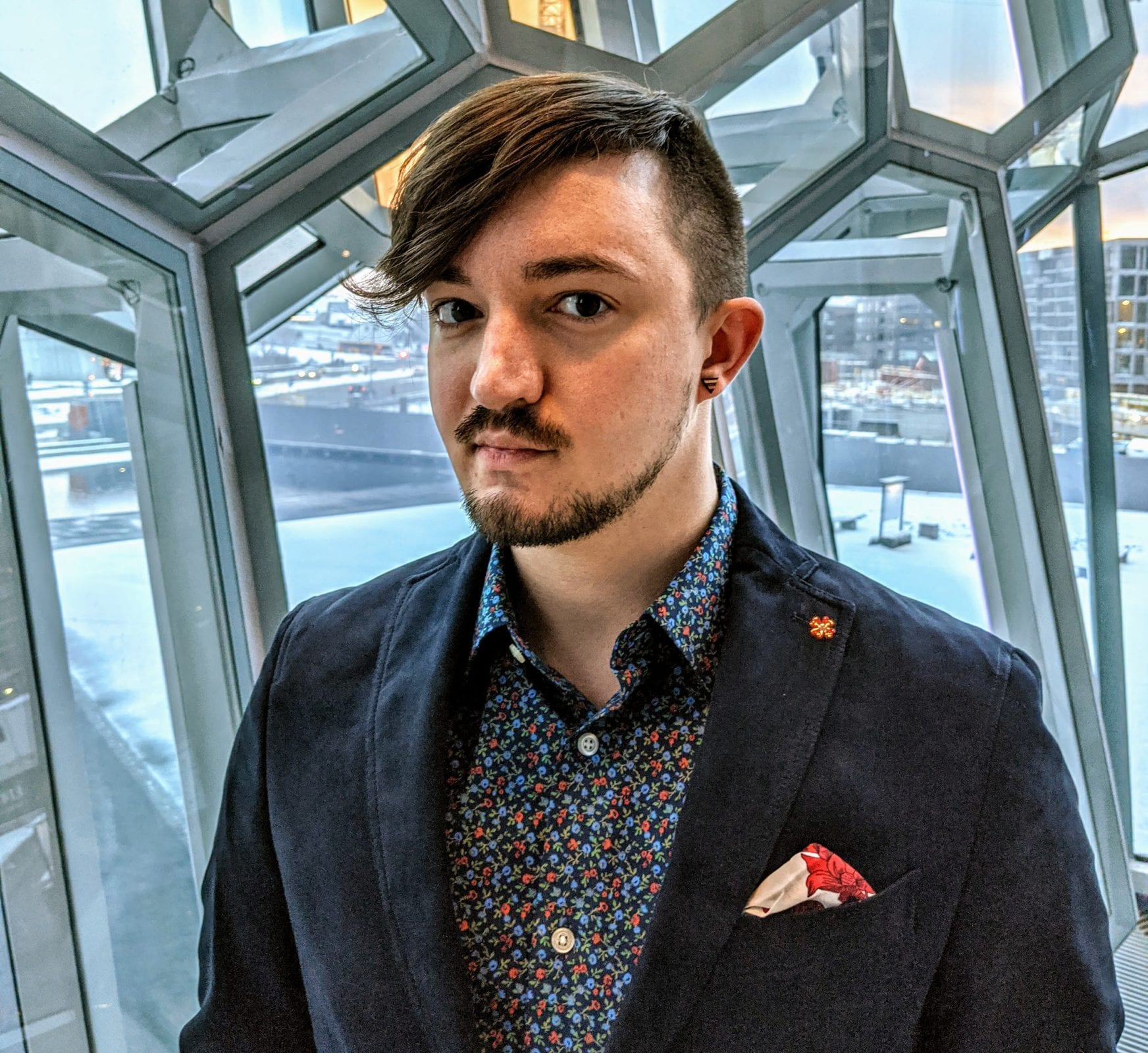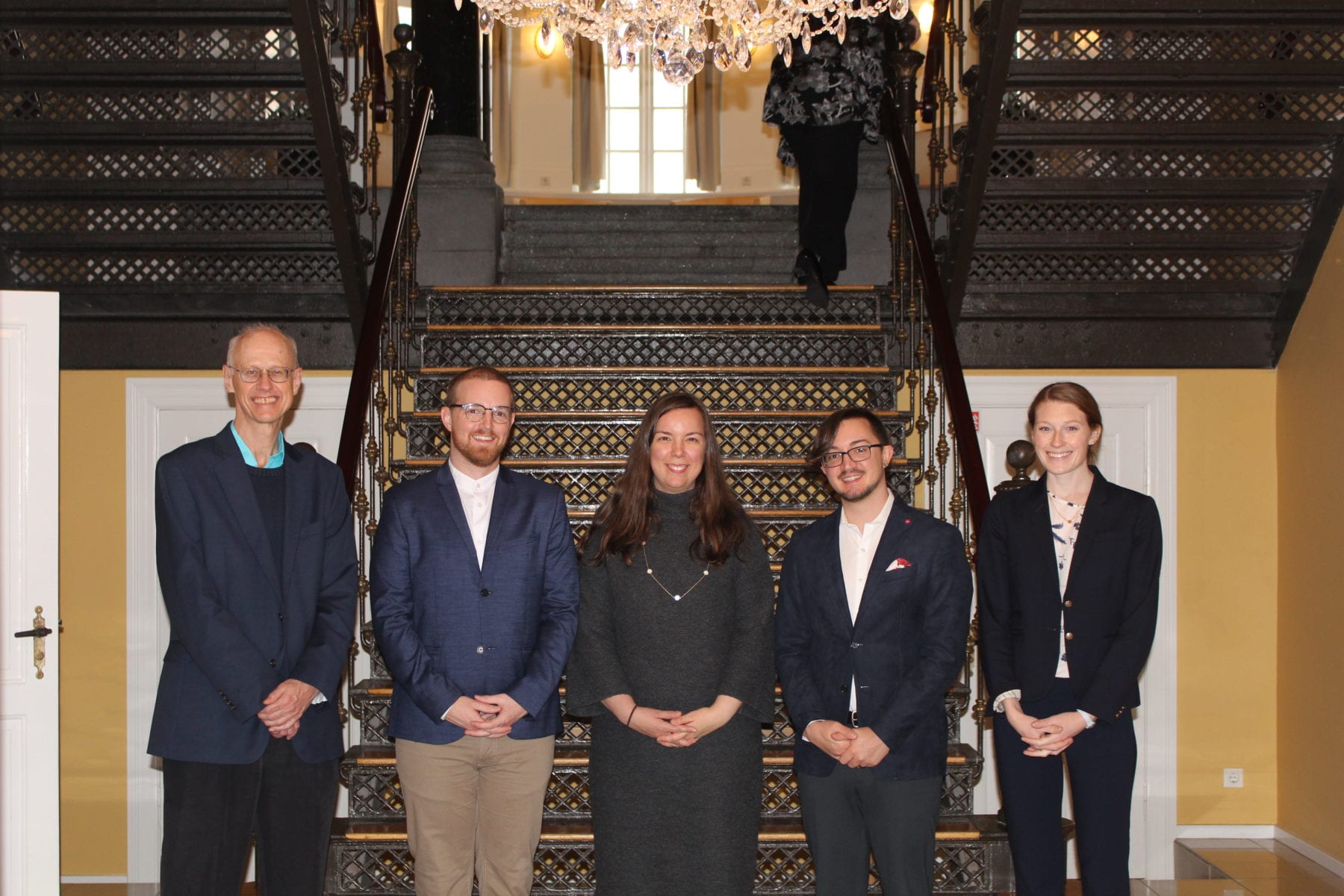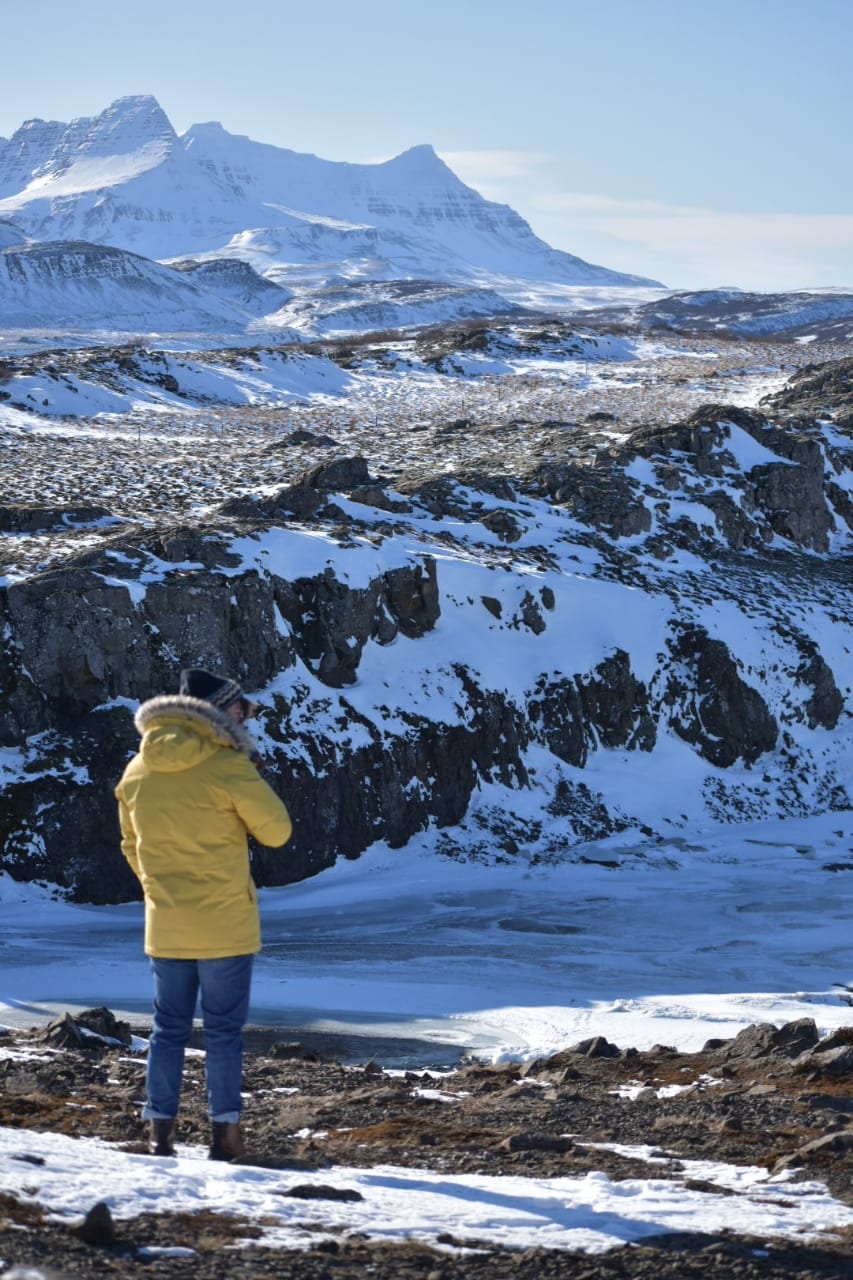On Iceland, Ethics, and Fulbright in a Time of Digital Technologies

By Josh Rivers, M.Sc., Fulbright Fellow 2019-2020
Josh Rivers is a PhD candidate in Anthropology at the University of Wisconsin-Milwaukee and a Player Researcher at CCP Games in Reykjavík Iceland. Josh holds a MSc in Social Sciences from the University of Amsterdam, a BA in Anthropology from George Washington University, and qualifications in Gender Studies and Sociology from Ruhr-Universität Bochum, Germany. In 2019, Josh received the Leifur Eiriksson Foundation Fellowship as well as the Fulbright Student Award to conduct his PhD fieldwork in Iceland on architecting ethics about race, gender, and sexuality into virtual worlds. At present, Josh works as a Player Researcher at CCP Games where, with his background in Gender Studies and Queer Anthropology, he continues to explore questions of representation as they’re related to identity in video games. Alongside his work at CCP and UW-Milwaukee, Josh also researches drag performance art as a conduit for local culture-making and political activism. CCP and the project Josh and his team members have been working on to bolster inclusion and remove barriers of access to games has gained much attention and could serve as a leading example for other gaming companies. More recently, Josh and his team were involved in the successful launch of Project Discovery: COVID-19, an effort on CCP’s part to utilize citizen science to aid in combatting the pandemic.
The pandemic that has plagued the world in 2020 and into 2021 has highlighted both the rise of social media through the 2000s and 2010s and the ever-growing importance of internet communication platforms. In light of how enmeshed we are with our phones, our email, messengers, and WhatsApp, it is undeniable that the Internet is now a large part of everyone’s life. Given the growing significance of digital technologies and the role said technologies play in our daily lives, it follows that we should understand these technologies better, or at the very least know a bit more about what exactly it is that we’re entangled in when we click those blue login buttons, retweet a cute picture, or swipe right in the hopes of new romance. With these questions in mind, and thanks to the support of Fulbright Iceland, I embarked on a year-long ethnographic fieldwork project in Reykjavik, Iceland where I hoped to understand how values and norms, particularly those tied to race, gender, and sexuality, are architected into digital platforms through studying CCP Games, the creators of the world-renowned video-game, EVE Online.
Known for its unique approach of transparency when it comes to interacting with its users, CCP Games was the perfect candidate for my research. Studying how this company created and now maintains a virtual world that is home to millions of players across the globe was an exciting prospect and my time at CCP Games has shown me that every line of code is a form of architected ethics. From designing EVE Online’s empires to be divided initially by race and skin tone, to now trying to alter these implicitly racist decisions years later, there are undeniable ethical decisions underlying how designers, engineers, and programmers craft the code that makes our login buttons blue, our eyes drift to particular photos, or even allows us to interact with other social media users in certain ways. Still, it is how people take the rules laid out before them and put them to use that makes technology what it is. In a sense, while the companies that craft our digital lives certainly play a large role in encouraging us to utilize their platforms in a particular way, we users also play a role in putting those stances into practice, or disregarding them entirely.
Gaining this deep insight into how technology companies function is difficult. No social media platform or video-game developer wants to paint themselves in an unflattering light. That is why the workhorse of anthropology, ethnographic fieldwork, was key to my project’s success. In ethnographic fieldwork, the researcher is the research tool. Ethnographers observe the field of study and work alongside their ‘research participants,’ perhaps more politely described as interlocutors or the ones we speak with. By doing so, ethnographers get a hands-on feel for the answers to their research questions. Ethnography allows us to experience daily life and the reality of the day-to-day within the context of momentous occasions, big moments, and in the case of technology companies, all important press-releases.

In my own work, my presence at CCP Games’ headquarters in Reykjavik allowed me to be on the ground and witness key ethical decision-making moments such as senior leadership coming to terms with the perception that they had actively excluded women and people of color from their game. In the weeks and months following this realization, they tasked several teams with exploring how to combat this and decrease barriers to entry for people who had long been deemed ‘non-players’ by several outlets. Indeed, it is small decisions such as limiting the skin tone of certain characters or presenting only normatively ‘beautiful,’ that is skinny and muscular bodies that highlight how the smallest of parts of a virtual world impact not only our view of that world, but of the offline reality we reside in. Seeing idealized and unattainable body forms can serve to motivate us to go to the gym more, but it can also demoralize us and reinforce unhealthy and unrealistic body standards. Similarly, the lack of queer representation in games writ large reinforces the notion that queer people are not the norm, so of course they would not exist within the ideal fantasy worlds that video games often are.
It is with these questions in mind that I approached my fieldwork, trying to understand where such decisions are made and how, oftentimes, they are implemented into our digital lives purely by lack of active consideration of lives outside the ‘norm.’
In short, most video game makers are white, straight, and often men. Accordingly, while they do not maliciously exclude other categories of identity, it became obvious throughout my fieldwork that the lack of exposure to people outside of the societal norm of game-makers causes many of them to exclude by virtue of never thinking about inhabiting a body that is discriminated against in some form or fashion.
All of this said, it is because of Fulbright Iceland’s support of my project that I landed in Reykjavik at all. By realizing the importance of challenging the status quo of research and giving me the chance to study something relatively novel within the world of academia, video game companies, Fulbright Iceland has played a major role in helping all of us better understand the technologies we use every day. This helps us to see how the companies behind these technologies are neither inherently good, nor inherently evil. The exclusion of non-white, non-male bodies and identities within video games, but also broader digital technologies such as face recognition software is often not rooted in a malevolent intent to exclude, but in a naive, albeit problematic, ignorance.
Using my Fulbright grant, I was able to be present to witness how this process happens, such as when developers and programmers made key decisions about EVE Online’s future as they developed a novel new player experience that markedly lowered the barrier to entry for the seventeen year-old game. I also noted, however, that those making key decisions such as how to alter the game’s character creator to be more inclusive did not see the significance of such decisions themselves. This support also allowed me to augment my fieldwork at the company by experiencing the cultural context of CCP Games, Iceland, and see how the work practices of this Icelandic company were informed by the island of ice and fire that it was founded on.
Similarly, it is thanks to my cohort of fellow Fulbrighters that I even began asking questions about the code of EVE Online. Initially, I was almost singularly focused on CCP Games employees’ interactions with their players as people, not necessarily considering the role that engineering and programming played in these interactions. Yet over countless coffees and teas in many of the vibrant and welcoming cafes of Reykjavik, I was pushed to ask these questions by fellow anthropologists, geologists, and Icelandic cultural experts. Having a diverse array of personal and disciplinary perspectives represented in my Fulbright cohort ensured that I was considering every angle there was to think about with my project. It is through the support of my fellow grantees and the Commission that I am happy to say that my project was a resounding success and that my dissertation will see completion in Autumn of 2021, wherein I will speak to the questions of institutionally architected ethics in digital spaces in an ongoing effort to pull back the veil on the undeniable impact of technology on our gendered and racialized perception of the world around us.
Indeed, motivated by this effort I am still in Iceland, now working at CCP Games as a Player Researcher to ensure that the voices of all gamers, players, and people are considered when designers are implementing new features for the game, when marketers are designing advertising material, and when senior leadership are pushed to consider who should play EVE Online. Alongside this work, I remain involved in CCP’s “Project Discovery: COVID-19” project, wherein players were tasked with participating in analyzing scientific charts of blood samples of COVID-19 patients so as to aid broader scientific efforts in combating the pandemic. Learning how to make this scientific process both fun and engaging for the players of EVE Online is an integral part of my work as someone whose job it is to put players and people at the center of game design.
Thanks to the Fulbright Iceland Commission, my cohort mates, and CCP Games, we are able to move into 2021 and beyond with a clearer understanding of and curiosity for the ultimate question I want to answer: How does technology reinforce or challenge our understanding of the world as only truly belonging to white, straight, cisgender men?





